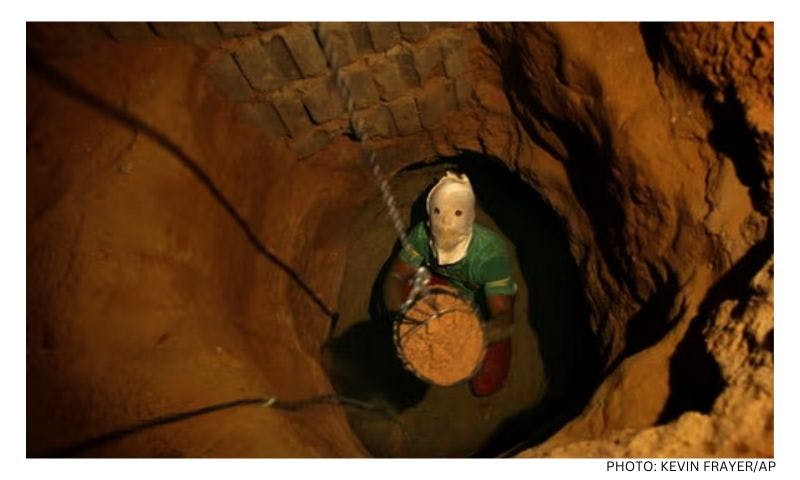Published: 27 May 2017
Last updated: 4 March 2024
Book Review: Australia’s Unthinkable Genocide by Colin Tatz
Within a few score pages of his newest treatise on race, political scientist Colin Tatz presents an anecdote about the treatment of Aboriginal people in Australia that chills to the bone.
It was 1962. He and his wife Sandra were visiting the Retta Dixon Home for Aboriginal children in Darwin.
The superintendent, Ms Shankleton, pressed a six-month-old baby boy into Sandra’s arms. Seeing the couple’s enchantment, she said they could have him if they donated 50 guineas (now $150) as down-payment.
Tatz, then still comparatively dewy-eyed about Australia’s reputation as the “land of the fair go,” dismissed this as the action of a foolish old missionary. Like so many others at that time, he could not know the full extent of Australia’s Aboriginal child removal policies, subsequently exposed by the Human Rights Commission in the 1990s.
Already a scholar and a disaffected Jewish son of apartheid-era South Africa, he went on to become an active supporter of indigenous rights. He went further than most; he used the “G word” – genocide - to describe several aspects of the treatment of indigenous people, including the policies and practices that produced the “stolen generations.”
Author of more than 20 books, in this new work, Tatz documents the many ways in which he believes Aborigines faced genocide as a result of colonisation.
Right up-front, he asserts that he has the right to speak out about Aboriginal issues. Sensitive to criticisms about white people writing on race, he declares that it does not hold true that only victims can write about their victimisation.
Given the sins of denial and omission that mark race matters in Australia, it is refreshing to see that declaration. Indigenous people need additional voices raised too on their behalf, given that the “tyranny of the majority” can oppress within a democracy, as we see in Trump’s America.
With methodical recounting of massacres, incarceration, segregation, assimilation and now, intervention, using policy statements, and the words of eyewitnesses and participants, Tatz unscrolls a grim roll call of evidence that is indeed distressing to read.
He lists 70 known sites of massacres between 1804 and 1928 and, using primary sources, concludes that in this era, Aborigines were not accidentally killed as a by-product of settlement – rather, it was because of who they were.
He speaks of “child-stealing” and reveals how he once tried unsuccessfully to help two Arnhem Land parents placed in a Darwin leprosarium have their three children returned. He interlaces details that expose the crushing eccentricities of racist attitudes and policies.
For instance, in 1867 there was a Queensland law against Aborigines looking after diseased sheep. In 1934 South Australia, which then administered the Northern Territory, made it a criminal offence for female Aborigines to dress as men – to stop stockmen from keeping women disguised as so-called drovers’ boys. In 1909 Western Australia’s Chief Protector, C.F. Gale, said that when Aboriginal children were taken from their families, they forgot them in 24 hours and were “glad to be rid of them.”
Tatz does not pretend to be detached. It is impossible to be dispassionate about genocide, he says. Beneath the scholarly analysis, the emotion ripples. You could almost make a sad poem of some of his lines.
“The history of failure is all about us and we don’t see it…
“Genocide is never spontaneous…
“Genocide memory is … different and special …Decades, or even centuries later, the echoes and shadows are audible and visible by an ‘atmospheric osmosis’, an absorption of something momentous, an overwhelming sadness that has seeped into the sitting room, the cuisine, the wall hangings, the music played or not played.”
The forensic examination of racism has been Tatz’s passionate lifelong project since he fled his homeland, which he describes as an “abnormal” country. The final trigger for his migration to Australia was the white label affixed to a jar containing his donation of his rare AB+ blood, “signifying the start of transfusion apartheid.”
He arrived as a kind of innocent in matters Aboriginal. Because of what he calls our nation’s “wilful amnesia,” which by the 1960s had produced little scholarship in the area, it took him a while to grasp the extent of what had happened to the indigenous peoples.
Now he calls it “our genocide,” denied by most because of the wish to believe in Australia as a benign nation, an essentially humanitarian country.
“Australianness, by birth or naturalisation, is adjudged a prophylaxis, an inoculation against bad behaviour,” Tatz writes.
Tatz has plumbed the meaning and application of the word “genocide” since studying at Yad Vashem, the Jerusalem Holocaust documentation centre, in 1986.
The term “genocide” was only coined in the 1930s by the Polish-Jewish jurist Raphael Lemkin, as Nazism rose in Europe, Tatz explains. He combined the Greek genos (a race or tribe) with the Latin cedere, meaning to kill.
Currently, at one extreme, Tatz writes, it is seen as “megadeath” of the Auschwitz kind. At another, its use is flippant – as in the Melbourne newspaper that headlined a story on the opening of the hunting season as “Duck genocide begins.”
But the lens through which we should see genocide he believes, is still that of the United Nations Genocide Convention, which Australia signed in 1948, defining it as “acts committed with intent to destroy…a national, ethnical, racial or religious group…”
That includes “forcibly transferring children of the group to another group” – hence the Human Rights Commission finding that the stolen generations episodes amounted to genocide.
That transfer has been documented, but where some Australians still have problems with the definition applying here is the intent. Say the people removing the children from their families and those who raised them thought they were “rescuing” them from harm and giving them a better life? Apparently, many did.
Genocide, he argues, can be committed without malevolence. It can be committed “with good faith or with benevolent intent.”
His arguments are relentless and confronting and he contends that even in the self-determination era, Aborigines were told to “get on with it” themselves without, in many cases, having been given the means or education to do so.
He is a harsh judge of Australian governance and singles out bureaucrats as particular culprits. This is a sweeping generalisation and needs backing up. I do not doubt, however, that there is plenty of evidence of specific bureaucratic failure in indigenous affairs. It is a rich research area for those able to obtain the data.
Tatz also speaks of the deep dysfunction in many indigenous communities, which he argues has resulted from the treatment they have suffered. But he could have made a little more of the many ways in which Aboriginal people have survived and even thrived despite their oppression.
This book is a plea to read the distressing stories that support his case and to not just turn the page and forget. It is meant to disturb and disrupt. It is about history and also the present day.
Only a day after I read Tatz’s discussion of the common catchcry that people should “move on and get on with it,” I saw those very words in a newspaper article about the stolen generations. They are so commonplace, we barely flinch.
Australia’s Unthinkable Genocide, Xlibris 2017, is available from, among others, Xlibris, Amazon, Booktopia, Barnes & Noble or Abbey’s Bookshop, Sydney.
This The Jewish Independent article may be republished with this acknowledgement: ‘Reprinted with permission from www.thejewishindependent.com.au’
Related:
Colin Tatz – Australia’s problem with genocide
Book Review: Colin Tatz and Winton Higgins, The Magnitude of Genocide, Santa Barbara: Praeger, 2016





Comments
No comments on this article yet. Be the first to add your thoughts.